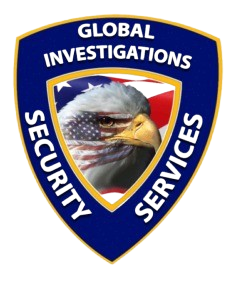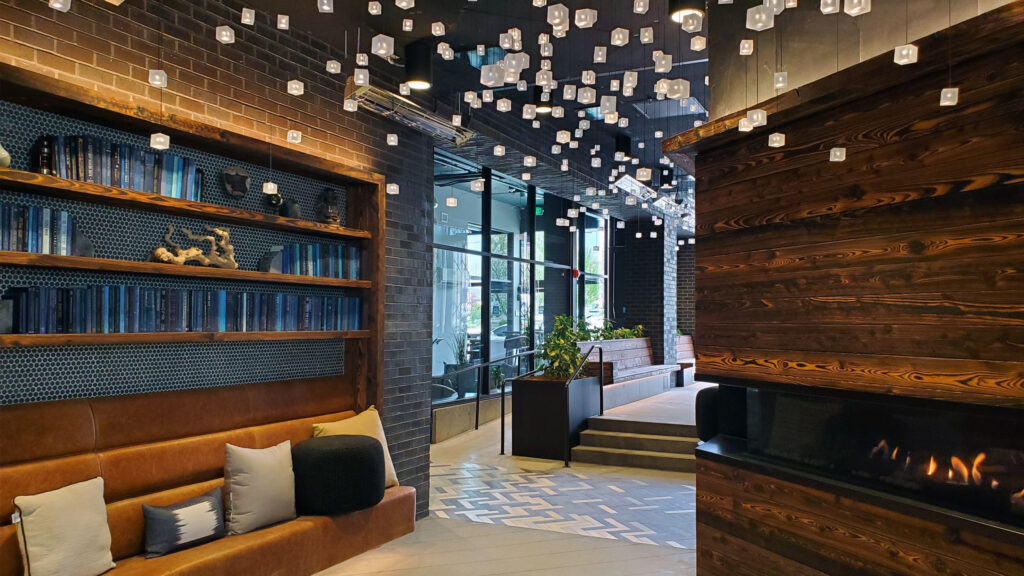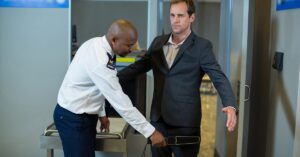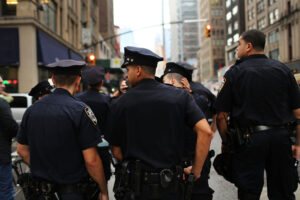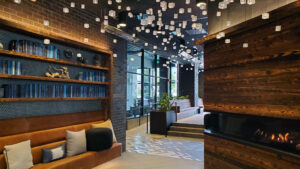Smart tech is redefining Nassau lobbies with enhanced safety, efficiency, and staffing, where security officers and smart systems work seamlessly together.
In today’s fast-evolving world, commercial and residential buildings in Nassau County, NY are undergoing dramatic transformations. No longer just transitional spaces, building lobbies are now high-tech hubs designed for safety, convenience, and an elevated tenant experience. The integration of smart technology into building lobbies is quickly becoming the new standard. At the heart of this evolution lies the seamless collaboration between technology and human oversight, especially through well-trained building lobby security officers and strategic building security guard staffing.
The Evolution of Building Lobbies
Traditionally, lobbies served as a waiting area or passageway. Now, they are command centers for safety, access control, and even branding. With the rising importance of smart buildings and digital infrastructure, property owners and managers in Nassau County are embracing innovations that enhance security, efficiency, and tenant satisfaction.
Key Smart Technologies Used in Modern Lobbies
Facial Recognition and Biometric Access
Advanced entry systems using facial recognition and biometrics have replaced outdated ID cards and manual sign-ins. These systems enable faster access while improving security and reducing human error.
Touchless Entry Systems
Especially popular after the pandemic, touchless systems allow tenants and visitors to enter buildings with smartphones or RFID-enabled wearables, enhancing both hygiene and convenience.
Integrated Surveillance and AI Monitoring
CCTV is no longer enough. AI-powered cameras can detect unusual behavior, recognize license plates, and alert building lobby security officers in real-time. This proactive approach is essential in deterring threats before they escalate.
Visitor Management Systems
Digital platforms now handle visitor registration, host notifications, and badge printing automatically. Some systems even integrate with calendar tools, enhancing efficiency for office buildings.
Environmental Controls and Energy Monitoring
Smart thermostats, lighting systems, and occupancy sensors in lobbies can significantly reduce energy consumption while enhancing comfort and ambiance.
The Role of Building Lobby Security Officers
Despite technological advancements, the human element remains indispensable. Building lobby security officers act as the first point of contact for residents, employees, and guests. Their responsibilities include:
- Monitoring access points and security feeds
- Assisting with visitor check-ins
- Responding to emergencies
- Coordinating with law enforcement if needed
These officers not only manage physical security but also contribute to a sense of community safety. Their presence ensures that all smart systems are used effectively and remain responsive to real-time threats.
Optimizing Building Security Guard Staffing
Smart buildings require smart staffing. Effective building security guard staffing means placing the right number of trained personnel in strategic areas based on risk analysis and building size. Some key factors include:
- Building foot traffic and occupancy
- Crime rate of the surrounding area
- Number of entry and exit points
- Presence of high-value assets
In many Nassau County buildings, a combination of roving guards, stationary lobby officers, and remote monitoring personnel is used to ensure 360-degree protection.
Benefits of Smart Tech Integration
- Enhanced Security: With advanced surveillance and instant alerts, response times are quicker and more effective.
- Increased Efficiency: Automated systems reduce the workload on staff and streamline everyday operations.
- Better Visitor Experience: Fast, touchless, and seamless visitor check-in processes improve guest satisfaction.
- Energy Savings: Automated lighting and HVAC systems in lobbies contribute to significant cost savings.
- Data-Driven Decisions: Smart systems collect data that can be analyzed to improve security protocols and building management strategies.
Real-World Applications in Nassau County
Office Buildings
Corporate offices in Garden City and Mineola are leading the way with smart access control and fully automated lobby check-in systems. Staff coordinate effortlessly with tech platforms for seamless visitor management.
Residential Complexes
High-rise apartments in Long Beach are integrating smart intercoms and mobile entry apps. Here, building lobby security officers ensure that only verified residents and guests gain entry, enhancing resident safety.
Hospitals and Medical Facilities
With high patient turnover, these buildings employ cutting-edge tech for both hygiene and access control. Integrated systems allow instant ID verification and access clearance.
Challenges and Considerations
While smart technology offers many benefits, building managers must consider:
- Cost of Implementation: High upfront investment can be a hurdle for older buildings.
- Training Requirements: Both staff and residents need training on how to use new systems.
- Privacy Concerns: Data collected by surveillance and access systems must be stored and used responsibly.
- Maintenance: Regular updates and maintenance are essential to ensure ongoing system reliability.
Future Outlook
The trend toward smart lobbies will only grow. Innovations like facial recognition, AI analytics, and IoT devices are becoming more accessible and affordable. Nassau County is poised to be a leader in this movement, especially as more property managers recognize the dual importance of building lobby security officers and intelligent infrastructure.
Conclusion
As building lobbies in Nassau County evolve into secure, high-tech environments, a balance between smart systems and professional security personnel becomes crucial. By integrating smart solutions with optimized building security guard staffing, property managers can create spaces that are not only safe and efficient but also welcoming and modern.
FAQs
Why are building lobbies important for security?
Lobbies are the first point of entry and act as a control hub for access, making them critical for ensuring the overall safety of a building.
Can smart tech completely replace lobby security officers?
No. Technology enhances security, but trained officers are essential for managing emergencies, interpreting data, and offering human judgment.
What are the costs of installing smart tech in a lobby?
Costs vary by size and complexity, but range from a few thousand dollars for basic systems to tens of thousands for advanced integrations.
How does smart tech improve visitor experience?
It speeds up check-ins, offers touchless entry, and ensures guests feel safe and welcomed.
Are these technologies compliant with privacy laws?
Reputable systems comply with federal and state regulations, and building managers must ensure data is handled securely and ethically.
